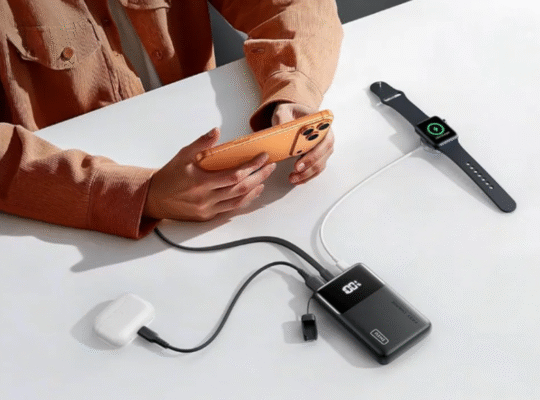Samsung has officially launched the Galaxy XR, its first mixed-reality headset built on Android XR, Google’s new operating system designed for spatial and extended reality devices. The headset represents Samsung’s first major step into the world of next-generation immersive computing.
Innovative Approaches to Web Browsing and Applications
With Android XR, users can engage with applications, games, and tools in three dimensions, merging the virtual and the physical. The Galaxy XR can be switched between full virtual and real environments, and the control is done by movements in the hands, voice, and even the eyes.
Because it runs Android, users have access to millions of existing apps from Google Play, alongside XR-optimised versions of familiar tools like Google Maps, YouTube, Google Photos, Chrome, Meet, and Google TV. Samsung says more than 50 new XR experiences from developers such as Adobe, Calm, Fox Sports, and MLB are already available, with more coming soon.
Also Read: Samsung’s Rumoured Smart Glasses Might Arrive Sooner Than Anyone Expected
Gemini: The AI Behind the Experience
The AI developed by Google — and the most modern virtual assistant — at the heart of the Galaxy XR experience is called Gemini. But unlike most AI, Gemini does not just respond to commands; it thinks contextually. Gemini identifies what the user is viewing and inputs relevant and contextual information or offers suggestions.

Watching a game? Gemini can identify the players on-screen and pull up live stats. Working on multiple apps? You can ask it to organise your workspace, and it will automatically arrange windows in an easy-to-view layout.
Also Read: What Is Gemini for Home? Google’s New Smart Home Experience
Entertainment and Exploration in Mixed Reality
The Galaxy XR turns any room into a virtual cinema. Through Google TV and YouTube, users can enjoy immersive 180° and 360° content, or even revisit old memories in 3D through Google Photos, which can transform 2D images into layered, spatial experiences. Google Maps adds another dimension. With Immersive View, you can walk through digital recreations of real-world places — like Tokyo streets or the Grand Canyon — directly from your living room. Simply look at a landmark, and Gemini can tell you its story. There’s also Circle to Search, a feature that lets you draw a circle around anything — whether in virtual space or your real surroundings — to get instant information without breaking focus.
Built for Work, Too
Samsung isn’t just pitching the Galaxy XR as an entertainment device. It’s also a serious productivity tool. You can open multiple apps around you — a browser, documents, chat windows, music — and position them wherever you like in your virtual workspace.
New creative tools such as Adobe’s Project Pulsar and TopHatch’s Concepts let designers and video editors work naturally in 3D environments. A keyboard, mouse, or linked PC can be connected for a complete desktop-style setup.
Price, Availability, and Extras
The Galaxy XR is available now, starting at $1,799 (or $149/month) through Samsung.com and Samsung Experience Stores in the US and Korea. Demos are also open at select Google Stores in New York and California.
Early adopters can grab the Explorer Pack, which includes:
- 12 months of Google AI Pro, YouTube Premium, and Google Play Pass
- A discounted trial of YouTube TV (US) or TVING Premium (Korea)
- A full season of NBA League Pass or Coupang Play Sports Pass
- Exclusive access to NFL PRO ERA, Adobe Project Pulsar, Asteroid, and Calm
A Glimpse of What’s Next
The Galaxy XR is more than a new gadget — it’s a signal of where Android is heading. Built on open standards like OpenXR, WebXR, and Unity, Android XR gives developers the freedom to create more immersive experiences that blend the digital and physical worlds.
For Samsung and Google, this headset isn’t just another device — it’s a foundation for the next phase of spatial computing.





















